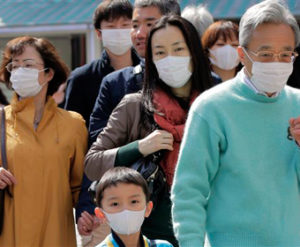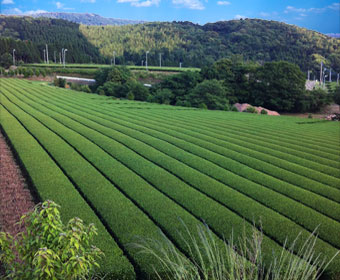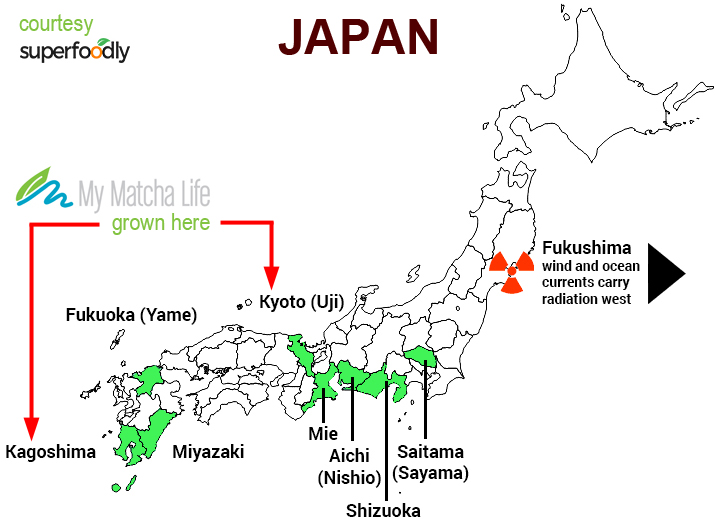
Matcha Tea Lead Free
Is Matcha Tea Lead Free?
Curious about the lead content in Matcha tea? In this article, we’ll explore the lead levels and heavy metals in Japanese Matcha green tea powder, and address concerns related to radiation. We’ll also explain how My Matcha Life® ensures the safety of its matcha products through rigorous testing.
Wondering about the lead content in Matcha green tea is a valid concern given that traces of heavy metals such as lead are pretty much everywhere, even in our own bodies. While no soil on Earth can claim to be completely lead-free, the rural tea fields of Japan come remarkably close. In a study involving 139 samples of Japanese green tea, not a single one was found to exceed safe lead levels. Japanese matcha is grown on well-tended low mountain plateaus that are among the most carefully managed agricultural environments in the world today.
Understanding Lead Exposure
Before diving into the details, let’s get the lowdown on lead. Excessive exposure to lead can lead to reduced brain function and motor skills. It’s the most common contaminant found in urban soil, primarily stemming from the historical use of lead in gasoline, pipes, and paint. You’ll often find relatively high concentrations of lead in areas around busy roads and older homes. It’s particularly concerning for children, as they tend to absorb more of it than adults.
Is Matcha Tea from China Safe to Drink?
A well-known tea study involving 1,225 samples of various varieties of Chinese tea found a great many exceeded recommended safety levels for lead:
China Grown Tea > Lead Test Results
- 24% of green tea: unsafe
- 32% of flavored tea: unsafe
- 53% of oolong tea: unsafe
- 59% of black tea: unsafe
Although China produces many excellent teas, it’s important to note that matcha tea is in powder form, and as a result it can potentially contain higher concentrations of heavy metals, including lead. Therefore, when purchasing matcha made in China, it’s advisable to ensure you have access to a corresponding heavy metal test result for added assurance.
Where Does Your Matcha Tea Come From?
Our Tea Lover’s Organic Ceremonial grade matcha is meticulously cultivated in the verdant mountain fields of Kagoshima, nestled near the southern-most tip of Japan (photo). Meanwhile, the tea leaves for our Foodie’s and Barista’s matcha are grown and harvested in the lush tea fields not far from Kyoto, Japan. See map below.

Does My Matcha Life® follow any special standards?
Certainly, we take quality and safety standards seriously at My Matcha Life®. Our matcha production complies with stringent food safety regulations, including FSSC2200 international standards, which encompass the North American GMP standards for food quality control. HAACP, NOP Organic/USDA Organic certifications are always up to date. This commitment to standards ensures the exceptional quality of our matcha products.
Radiation Concerns and Japanese Matcha
Is Japanese Matcha safe from radiation, you ask? Well, when it comes to My Matcha Life® matcha, you can rest easy. Despite the Fukushima tsunami wreaking havoc on four of Japan’s nuclear power reactors back in 2011, we still continue to test for radiation. Thankfully, our tea fields are situated far away from the affected site. Our ceremonial organic matcha is grown in Kagoshima, a location over 1,000 miles away from the damaged plant. Furthermore, the plant’s location on Japan’s east coast ensures that radiation is carried far out to sea by prevailing winds and water currents.
Ensuring Radiation-Free Matcha
So, how can we be so sure that our matcha is radiation-free? Well, there are only two companies whose matcha tea undergoes independent testing by American labs to check for radiation related to Fukushima. Additionally, we conduct tests for heavy metal and bacterial contamination. We are not just sellers but avid consumers of My Matcha Life® products, as are our friends, families, and valued customers. Our commitment is unwavering, aiming for nothing less than 100% safety assurance.

Learn how My Matcha Life® matcha tea is produced and its many health benefits.
Order your My Matcha Life® favorites today!